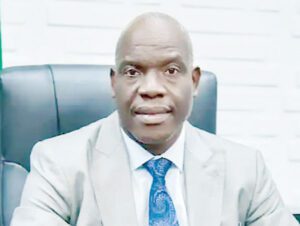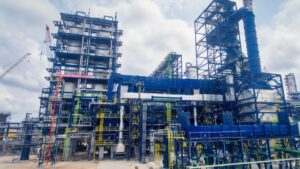
We can’t restock due to unfriendly E-payment platform of PPMC — Petrol dealers
Oil marketers on Wednesday said the scarcity of petrol in many parts of Nigeria was not abating because of the difficulty currently faced by filling stations to restock their tanks with products.
It was gathered that the recently introduced Customer Express e-payment platform introduced by the Pipelines Product Marketing Company had made it tough for marketers to pay for and lift petrol.
The PPMC is a subsidiary of the Nigerian National Petroleum Corporation, while the queues for petrol persisted in parts of Abuja and neighbouring Nasarawa and Niger states on Wednesday.
Dealers under the aegis of Petroleum Products Retail Outlets Owners Association of Nigeria and Independent Petroleum Marketers Association of Nigeria told our correspondent that they lacked product because they could not make payments through the new platform.
The President, PETROAN, Billy Gillis-Harry, said, “We are very committed to ensuring that the economy of Nigeria runs smoothly. So none of us will want to make life difficult for Nigerians.
“The point is that our members are not able to restock. They are not able to restock their filling stations and the reason is because we are finding it difficult to make payments.
“Marketers are finding it difficult to make payments on the new PPMC payment platform. That is the challenge and it is the major reason for the scarcity of petrol now.”
Gillis-Harry said many retail outlets were not dispensing petrol because the product could not be sourced at the official ex-depot price.
He said private depot owners dispensed the commodity at higher rates, which if purchased by most filling stations, would be sold at prices far above the approved pump price.
He said, “We are trying to make sure that we buy at the approved price since PPMC has not officially increased the ex-depot price from the current rate of N148.6 per litre.
“The law said we should buy at N148 and sell at N160/N163, but we are not able to access it. Now we are being pressured to buy from third and fourth parties at higher prices and when you do that, you run afoul of the law.”
Gillis-Harry added, “So our members are not willing to take that kind of risk. They cannot buy at N162/N164 and come back to sell at the price approved by the PPPRA (Petroleum Products Pricing Regulatory Agency).”
The PETROAN president said the e-payment platform was ordinarily supposed to be the way to do business but stressed that there had been severe broadband challenges.
“Many marketers cannot upload the required documents to get the process done as quickly as possible. So, at times, they are there for one or two weeks trying to upload documents,” Gillis-Harry said.
He added, “We have advocated that within this period the agency should give us a reprieve for us to make our payments manually and be able to lift products as fast as possible.”
He refuted claims suggesting that the scarcity was due to hoarding of products by marketers.
The PETROAN president said the petrol queues in Lagos were lesser than what obtained in Abuja and some Northern states because of the large number of private depots in the South-West state.
He also noted that the cost of petrol in Lagos was around N170 per litre, higher than the approved rate, because many retail outlets get their products from third party depots.
When asked what the NNPC was doing as regards the concern by marketers, which had led to the lingering petrol scarcity, NNPC’s spokesperson, Kennie Obateru, said the oil firm had no problem with the platform.
He said, “We have no problem with our payment platform. The online procurement platform known as ‘Customer Express’ @PPMC was introduced since last year to guarantee ease of doing business and curb sharp practices.”



